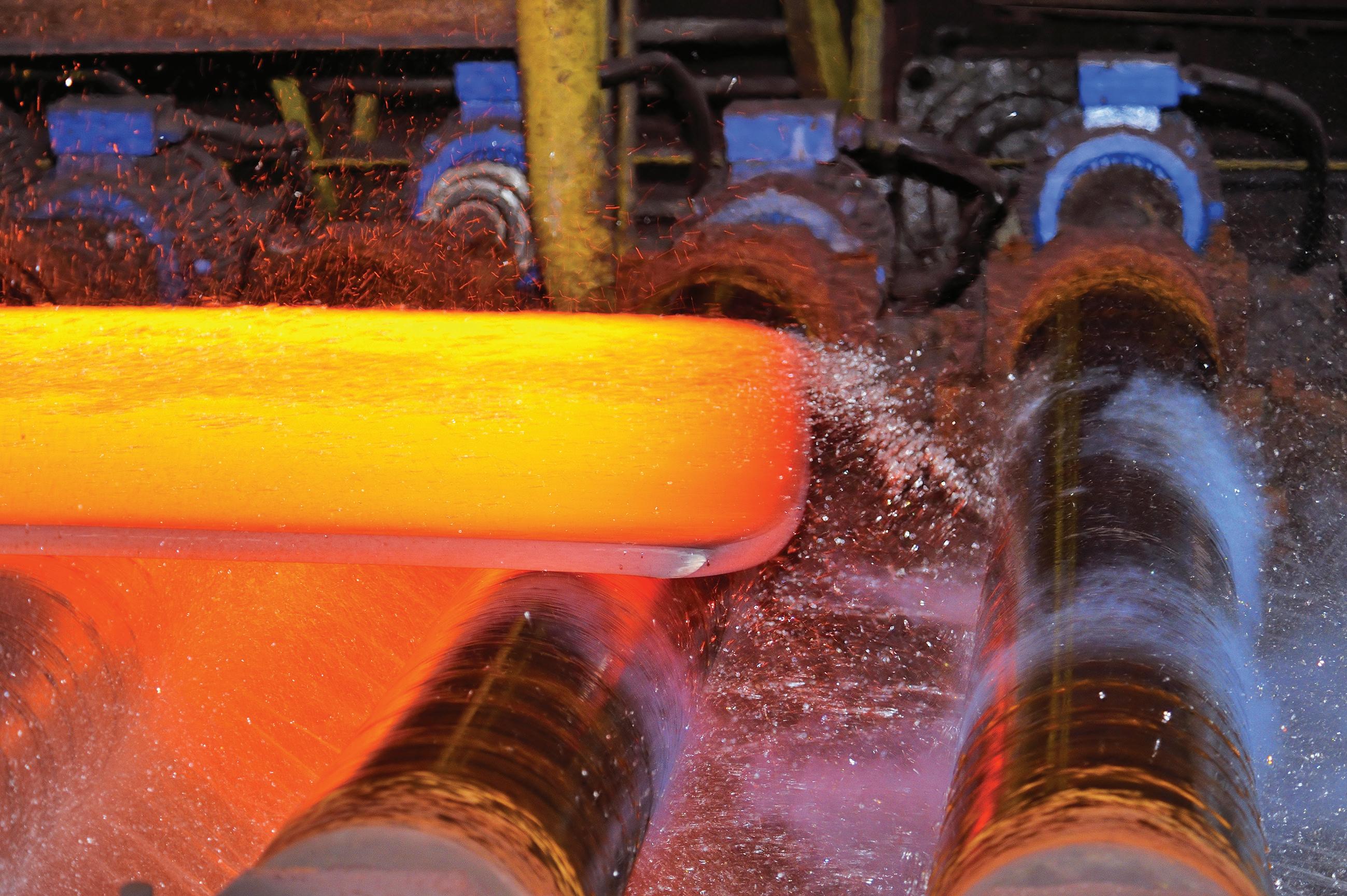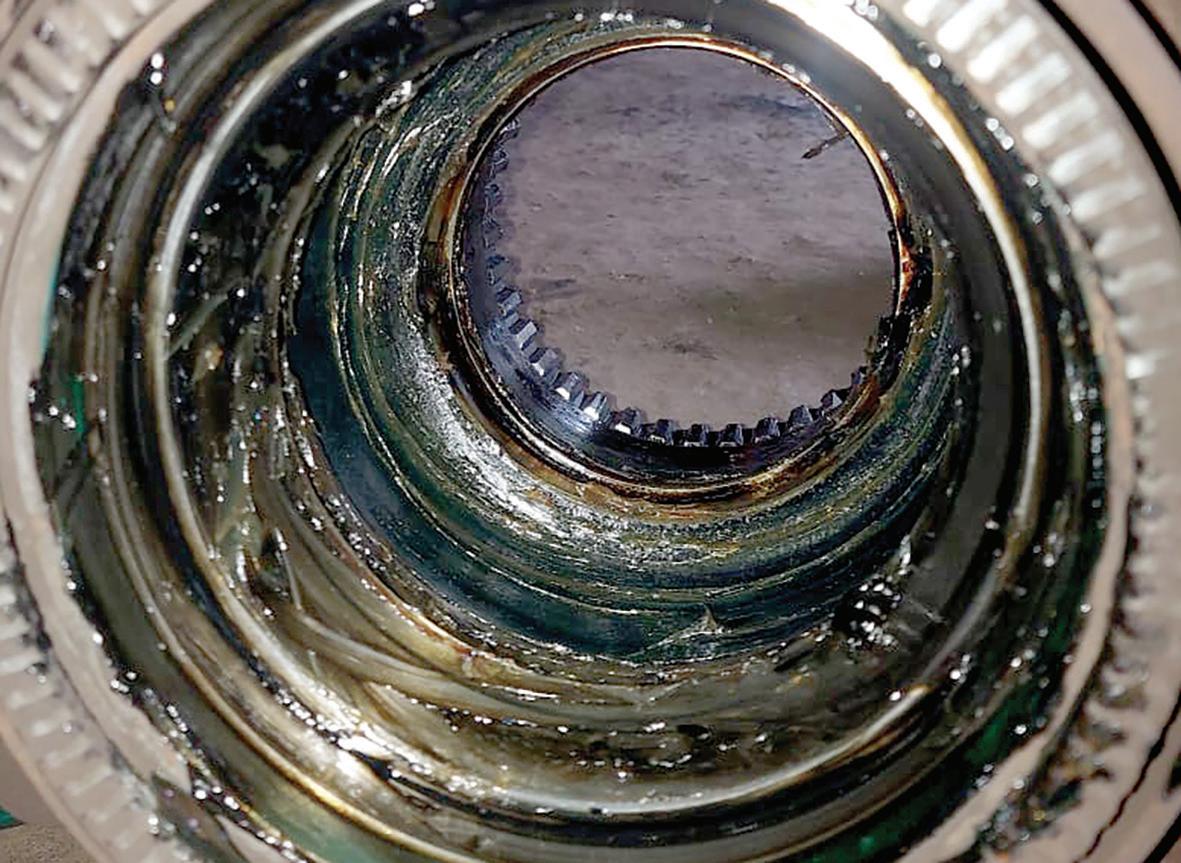Make your switch to calcium sulphonate grease a success
Chris Pether, Industrial CTS Group Leader, Afton Chemical LtdMany lithium-based grease users will already be aware of compelling cost and performance reasons for switching to calcium sulphonate (CS) grease in their applications. Not all CS greases are equal though: drawing on field trial experience, Afton Chemical explains the key success factors for a smooth transition and how the right partnerships can really pay off.
Coming on top of the electronics industry’s needs, the growing demand for electric vehicle batteries has driven significant increases in the cost of many rare metals. Over the past three years lithium hydroxide prices have more than quadrupled, leaving lithiumbased grease no longer able to deliver its signature balance of affordability and performance.
With its price now competitive and more stable than lithium, the appeal of calcium sulphonate as a grease thickener has grown. CS greases generally perform better in applications that demand structural stability and effective lubrication, especially at high temperatures, under heavy or shock loading and in wet conditions.
Based on Afton’s experience, collaborations and discussions with original equipment manufacturer (OEM) partners and customers, three key factors should be considered for a smooth transition to the right CS grease: performance balance, compatibility and longevity.
Rebalancing performance
Each type of thickener contributes a different pattern of strengths to the finished grease, shaping vital properties such as structural stability, thermal management, load-carrying capability and water resistance. Calcium sulphonate thickener delivers inherently good performance in all these areas, benefitting grease manufacturers as the cost of performance additives can therefore be dramatically lowered, or even eliminated. Not all CS greases are interchangeable, though.
Traditionally, CS greases contain a higher percentage
of thickener than lithium-based greases. In applications such as automotive wheel bearings, this can cause the grease to harden over time. Fortunately, there is now an innovative CS grease production process that allows the thickener content (and with it, the risk of hardening) to be minimised – saving manufacturing time and cost, while still demonstrating proven all-round performance.
Ensuring compatibility
When switching grease types, being able to remove all traces of the previous grease with a full strip down and cleaning with solvent is a rare luxury. More often, the new grease is simply used to physically displace the old. This creates a chance that they could interact negatively.
You might consult a grease compatibility chart before switching. Although, as Chuck Coe of Grease Technology Solutions LLC pointed out in his 2019 paper Compatibility Charts are Dangerous, these charts do not always agree. What’s more, they only account for interactions between different thickeners; there is no consideration of base oil and/ or performance-additive interactions. Incompatibility between any of these chemistries can weaken the thickener structure, resulting in poorer quality or inadequate lubrication. The most reliable way to confirm compatibility is to blend the new and existing greases, then test the performance of the mixture.
Afton typically carries out testing on 90-10, 50-50 and 10-90 mixtures of old and new grease to ensure there are no surprises. ASTM D6158 ‘Evaluating Compatibility of Binary Mixtures of Lubricating Greases’
makes a good starting point, as it looks at structural stability under shear and thermal loading. With a positive result here, any other tests deemed critical to the end application can then be carried out to ensure the mixture demonstrates all relevant characteristics.
Grease longevity
Once satisfied that the new grease (or grease mixture) delivers the necessary performance, it’s important to check that this can be maintained throughout its lifetime. Field trials that include regular grease analysis offer the best proof.

Field trials need careful planning and management to ensure they are relevant to the application and give robust, meaningful results. Brand new components must always be used if causality is to be clear. A high number of trial candidates makes good sense: statistically, a bigger sample can help to balance out any anomalous results and compensate for things that may go wrong. Field trial parts can get discarded and replaced during routine servicing; vehicles and pieces of equipment can get sold or scrapped by mistake; anything can happen!
Independent assessment and validation of components at the end of a field trial are also vital for minimising potential bias. This gives additional reassurance alongside lab testing: not just for the equipment owner seeking to switch grease, but for equipment builders and OEMs whose approval may also be sought.
Real world validation

Working in close partnership with OEMs, Afton has carried out relevant field trials using this new, lower thickener content CS grease. After performing successfully in an extended truck wheel bearing trial in the harsh Indian climate, the new grease was challenged to protect the hot roller bearings in a steel mill. Here, the structural and thermal stability of the grease is vital given its constant exposure to high loads, intense heat and splashing water.

The field trial CS grease was formulated with an appropriate additive package to support optimal performance under extreme operating conditions. Extended structural stability testing was carried out to investigate the grease’s laboratory performance, including 4-ball weld and wear, roll stability and work penetration tests. Low thickener CS grease matched or outperformed the incumbent lithium grease in all bench tests, so entered the trial phase.
With lithium complex grease, the hot roller bearings required regreasing 3 times per day and replacement every 10 days. Switching to CS grease not only lengthened the regreasing interval almost tenfold from 8 to 72 hours, it also extended the bearing lifespan from 10 to 60 days. This represents significant savings in grease as well as maintenance costs and even more importantly in missed production avoidance. These results were replicated in a second steel mill.

Performance payoff
When the right calcium sulphonate grease is employed, real-world savings are achieved through its unique performance strengths, namely through lowering costs of equipment maintenance (e.g. bearings) and increased productivity (less downtime via the less frequent re-greasing).
Using its expertise in close partnership with end users and OEMs, Afton offers relevant, replicable testing and trials that combine to give all stakeholders the reassurance they need.
How soon could you reap the double benefits of switching to the right CS grease? www.aftonchemical.com
